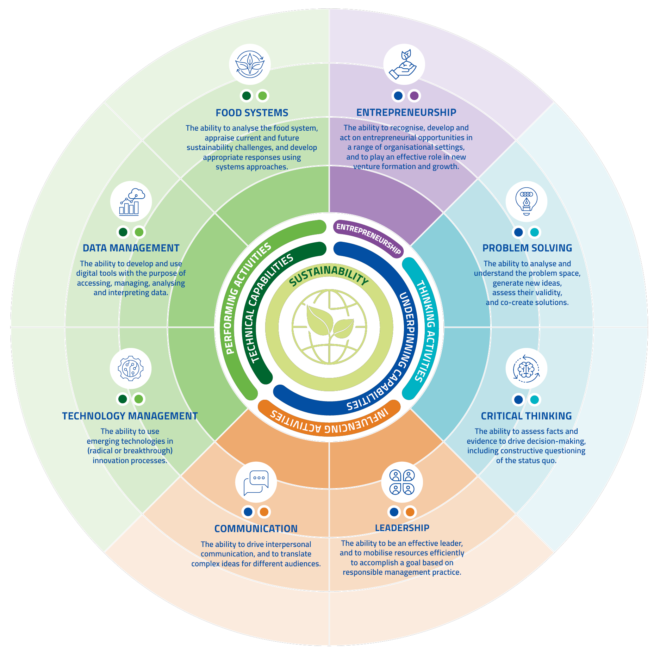Underpinning Skills are essential roots for growth and development!
With 2023 designated as the European Year of Skills, the spotlight has fallen on the pivotal role of education and skills development for the progress of societies across Europe.
Food education and skills development are essential for transforming the food system. How do we ensure all stakeholders have access to lifelong learning opportunities to help drive this change?

Why is food education important? Food education is fundamental to food system transformation!
Education is the bedrock of progress, particularly in an industry as essential as the food system. A well-informed and highly skilled workforce is better equipped to address the challenges posed by climate change, resource scarcity, and the ever-evolving demands of a growing population and diet-related public health issues.
Underpinning skills: the foundation of food systems transformation
Underpinning skills are the fundamental competencies that form the backbone of success in any field. In the context of the food system, these skills encompass a broad spectrum, including critical thinking, problem-solving, adaptability, and a deep understanding of the interconnectedness of the food system. Underpinning skills are the building blocks upon which specific technical expertise can be developed and rolled out across all regions within Europe.
We must redefine how education is embedded within the food system
We must redefine the way we approach innovation, ensuring education and skills development are embedded throughout every innovation process and business plan for all stakeholders across Europe.
Do you want to contribute to the debate?
How can EIT Food Education help you? What courses are available to help you develop your Underpinning Skills?
- Integrating courses and education programmes such as EIT Food’s online course Engaging with Controversies in the Food System into wider education and public engagement initiatives means stakeholders can approach critical thinking in a way that is relevant and valuable for their field.
- Initiatives that put shared learning at the core are essential for progress to develop new notions of collective leadership that can bridge the siloes in the food system. EIT Food is actively seeking to drive system change through an action-oriented approach in which diversity is key. For example, based on Shima Barakat’s three Cs of collective leadership - cooperate, collaborate and cocreate - WE Lead Food delivers a fertile environment where women can leverage their advanced skills, share resources and learn about the latest tools for leading change towards our future food system.
- Advancing skills can also form part of more academic programmes, such as the Master in Food Systems degree. The programme aims to develop top talent for the food sector, by training the leaders of the future. Organised by leading academic institutions and industrial organisations, the programme encourages students to drive the transformation of the food system and increase the competitiveness of the companies they choose to work for.
- Quality assurance and aligning education with industry needs are also keys to success. Initiatives such as Learning Services for Employers provide an internationally recognised mark of excellence in professional education for the food system. Through consulting over 1,000 businesses and employers across Europe, EIT Food found that most current education and training provisions do not meet the needs of the industry and that urgent change is needed to professionalise education across the food system

The future of food education
The food system issues are diverse, and we need diverse leaders with diverse competences to cocreate the solutions, and the social environments where such diversity can thrive for the benefit of everyone. Rather than trying to ‘fix’ any particular actor into traditional roles, we focus on challenging the state of the system, and equip learners with a range of entrepreneurial and leadership tools as well as diverse perspectives and insights.


